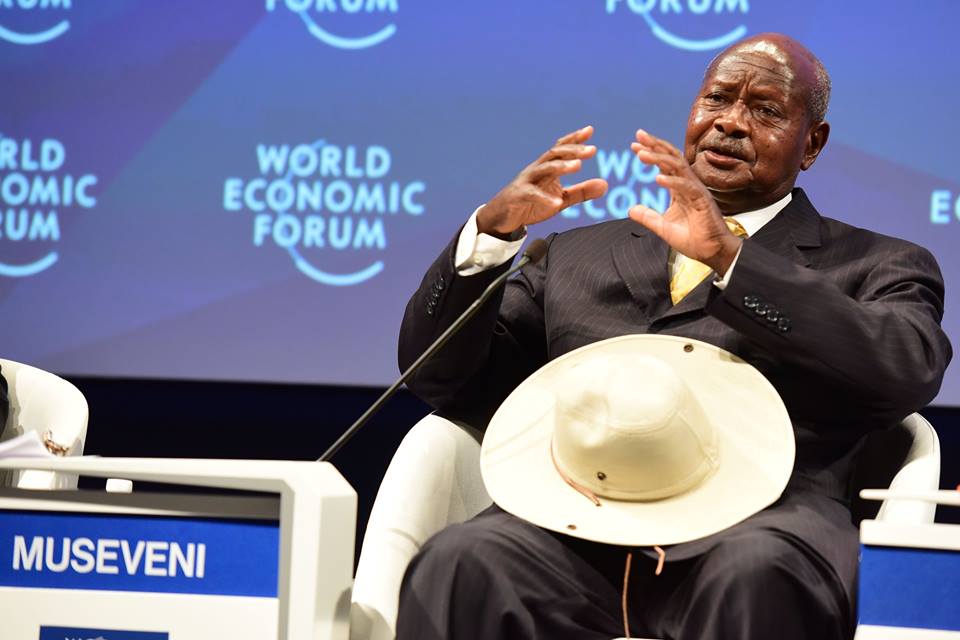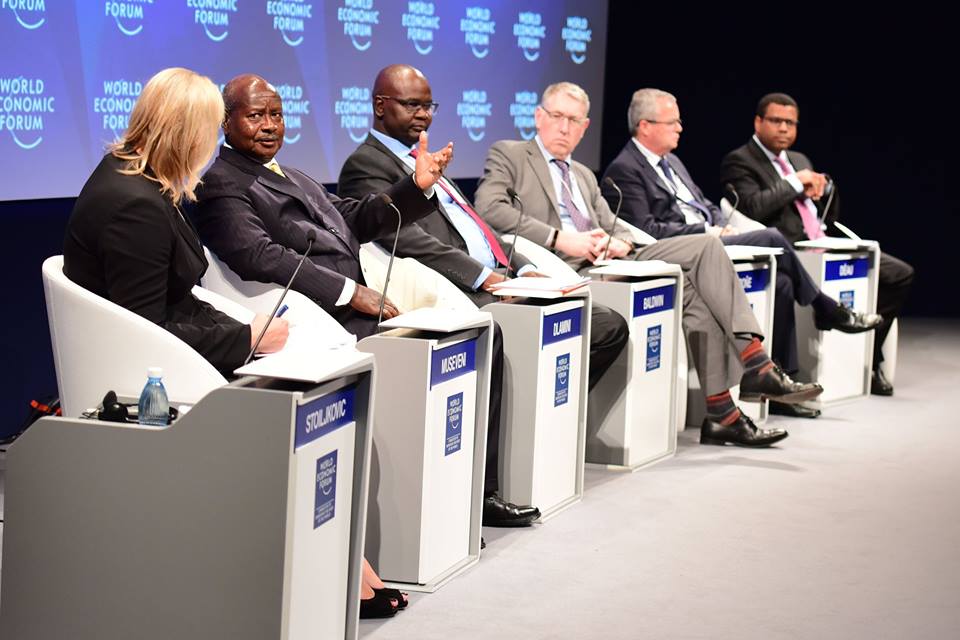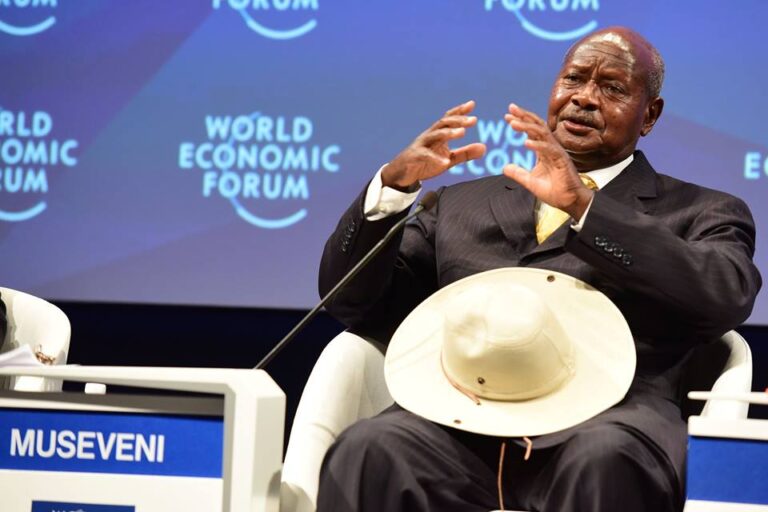
For Africa to develop, the political will of the leaders must be accompanied by the right strategy, President Yoweri Museveni has said.
The President was speaking as the chief panelist on the subject “Agenda 2063: Infrastructure Update” at the World Economic Forum on Africa in Durban, South Africa. The forum that started 3rd May 2017 will run until Friday 5th.
“The political will has always been there. Many African governments have wanted to succeed since the 1960s. The problem has been ideological meandering, where you get one item and make it most important. For example, you emphasise education at the cost of others but what will happen to your educated people if they do not have jobs? They migrate,” said the President.
The problem, noted Mr Museveni, has been fragmented vision, pointing out the example of African governments that at one point persecuted the private sector.
“This was done through nationalization, where governments took over assets of the private sector but instead interfered with forces that should have helped them create jobs. The political will has always been there but how to express that will through the right strategy has been the problem,” he added.

Ms Nena Stoiljkovic, the Vice President of the International Finance Corporation, moderated the discussion. The other panelists were Mr Andrew Baldwin, a managing partner of Ernest & Young responsible for Europe, Middle East, India and Africa, Mr Patrick Khulekani Dlamini, the chief executive officer of the Development Bank of Southern Africa and Mr Carlos Pone, the chief executive officer of AECOM, USA.
On strategy, President Museveni warned that singling out one element of development and hyping it at the cost of others, is detrimental.
“In the last 55 years, I have found out that taking one element and concentrating on it is not enough,” he said. “It must be infrastructure plus others like education, fragmentation of markets. You must ask, if you produce goods and services, who will buy? And is it sustainable?”
The President pointed out that most African governments had agreed on private-sector led growth, which must be supported by infrastructure to ensure low cost of production, cheap electricity, affordable transport, cheap credit among others.
Good infrastructure projects therefore are those that do not result into high costs for the private sector, said Mr Museveni.
“It is a bit of a contradiction. For example, if a government does a dam, the costs or tariffs tend to be low. But when the private sector undertakes a similar project, they charge high tariffs,” he said. “For a project like a dam, it will last for 100 years, the private sector should not be in a rush to recoup their money. You can collect your money in 20 instead of 10 years. That will help our economies develop, they will be competitive.”
Still on the subject of electricity, President Museveni said with the exception of South Africa that produces 44,000 Megawatts of electricity, most of Africa was lagging on that front.
“And yet if you compare with Norway, a country of just 3 million people, they generate 26,000 Megawatts. We need to be serious as a continent. The USA alone generates 1.5 million Megawatts and yet even if we developed all our hydro capacity on all African rivers, we would generate not more than 360,000 Megawatts,” he said.
President Museveni, while encouraging Africa to find its own resources to fund its development projects, took a swipe at international funding agencies for being frivolous.
“You go for funding and they bring so many jokers. I hear they are creating a level ground for all bidders. Then a small one loses and appeals and this stalls a project for five years. Africa should find its own money. Pay less salaries and develop your infrastructure,” he counselled.
Panelist Khulekani Dlamini, the CEO of the Development Bank of Southern Africa, was all praise for President Museveni as one of the key drivers of the Central Corridor project, which links Tanzania, Uganda, Rwanda and Burundi.
“This has been one of our most successful infrastructure projects because the political leadership led by President Museveni backed us. The presidents agreed that the project was critical and tasked their transport ministers to set up working mechanisms. It was agreed that ministers who failed would be fired,” he said, adding: “When you have the requisite political leadership, it happens.”

